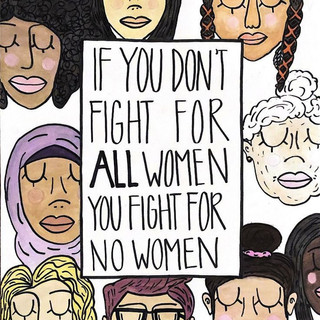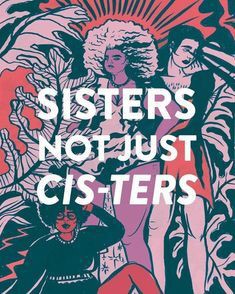
I do not wish women to have power over men, but over themselves.
-Mary Wollstonecraft ( A Suffragette)
FEMINISM AND EVOLVING DEFINING ELEMENTS
The defining element to feminism is Equality. But on a deeper level, it is about the acceptance of the differences existing in various forms and eradicating the profound influences of Hierarchy structure still functioning and dominating individual interests. While equality is about giving equal opportunities to left behind and simultaneously the male community.The prime focus should be on “Equity” – which stresses on the indispensability of giving a considerable raised chance of opportunities to the sexes ( behind).
Feminism is about bringing increased empowerment in every possible sphere required to lead a dignified life based on choices of self . However this is not where we started, we began with a simpler yet fundamental approach of right for survival of women in India ( called the first wave) deeply influenced by the ideas and values of liberalism,in which equality was a crucial demand, when it was about bringing equal social,political, economic and educational rights for women. Though India has witnessed a change or a more advanced defining element for feminism,while it was all about having rights outside personal ambience, the defining element then stretched itself towards rights in personal ambience in which gender roles were questioned , inequality was recognised at familial levels and serious rounds of acts , confrontations , discussions on the submissive patriarchal stereotypes occuring in families and personal relationships making " PERSONAL IS PUBLIC" known as the "Second wave” and then now it is being stretched towards reinforcing the empowered state of mind to have a choice, "AN INDIVIDUAL IDENTITY” reinforcing thought on the "idea of self", debates about intersectional feminism and inclusiveness of feminism are also referred to as the "Third wave”.
INTERSECTIONAL FEMINISM AND INCLUSIVITY
There have been considerable changes in different waves. Arguments occur on both the manifestations of working towards a more improvised model of feminism.And one which is in rounds of being subjected to criticism and support is the "DEBATE ABOUT INTERSECTIONAL FEMINISM".
While some say it is wrong and condemn the act in which so-called privileged women voice for justice and autonomy in not so minor issues.
Some have an opinion that there's work needs to be done about the problem of upper class women or cis woman and addressing the adversities faced by lower or marginalized sections of women where the problems still have social , political and economic facets. However, putting a compare meter to the existing problems of women of different societal / financial strata is an act worth condemning. Not only it makes feminism partial but simultaneously questions it's inclusivity. This is where the view comes " INCLUSIVITY IS CRUCIAL FOR FEMINISM TO GROW AND EVOLVE IN INDIA". Inclusivity to all problems, adversities, financial and domestic problems etc. of all possible status and strata of women is crucial for an actual force of feminism to grow and strengthen its impact for a more better in India.
INDIA IN THREE WAVES
When we bring focus to India, The North Eastern Region is still witnessing the First Wave, Northern India in Second Wave , And INDIVIDUALISM( THIRD WAVE) is spreading roots in Metropolitan cities. As we look across the ball, there exists differences in status of choice , power , freedom and other bare minimums. If we look through some statistics on employment rate ,Females still have 20.3% participation,while Males are at 48%. Gender Pay Gap still holds surface as men earn 24%more and women earn 19% as compared to their make counterparts. Females still precede men in Literacy rate by 70.3% and 84. 7% respective statistics. There's a decline in Work participation in women.The Unemployment Rate in Females has risen from 6.52% in January 2021 to 7.91% In December 2021.
Teenage Pregnancy rate is still an issue of concern with 7.9%cases ,making security and delinquency questionable.
CRUCIAL ASPECTS AND INFLUENCES
Education roles the most significant position in the being of a society or a community.
While it's quite evident and brought into notice multiple times how music and books reinforce patriarchal stereotypes. It's surprising to see that " MOVERS AND SHAKERS",the creative energy, is considered small or insignificant or put into the positions of subordinates. For instance - We have seen " He" mentioned as the general word for any questions , saying or answer in any textbook of the curriculum moving from the word problems of Mathematics to Holy sayings in books.
Religion plays a crucial part in sabotaging a women's identity , and restricts them to be a keeper and nurturer of all existing things around . While nurturing is not an attribute to be looked down upon , restricting a woman to just nurture and be the one who serves is still a crucial matter of concern.
Not only this, "THE MATERNITY BENEFIT ACT" passed by the Government of India struggles to find a place for itself and lags behind in effective implementation and exercise. A lot of women are not hired in the first place pertaining to their predicted pregnancy in the coming times.
WHY FEMINISM STILL NEEDS TO STRENGTHEN ITSELF IN INDIA
Even after education and economic success, patriarchy is still found on deeper levels which are not visible in broader view. There’s an absence of empowered state of mind to make individual independent choices. Though feminism is deepening its roots over the course of time in the country of vast diverse differences in the empowered states of women.
It’s still a requisite for the maximised involvement and participation of women who still are lagged behind or are in the initial stages of getting their privileges the bare minimum. As we move up the ladder we see new challenges , so with is the idea of feminism in India , the more it evolves and grows overtime ,the more new challenges and shortcomings to incorporate and work on . In India , the status of women having fundamental rights involved series of worked up acts, while still there are crucial measures stifling the rise of a new model of feminism like Religious and Cultural constraints ,existing pay gaps , Literacy rates , decline in Work participation post pandemic and prevalent cases of domestic violence and abusive behaviour towards women. In order to overcome the significant shortcomings and problems arising out of inability to address the so called minor issues of so called privileged class of women we need feminism in India which is inclusive of every aspect.



















Comments